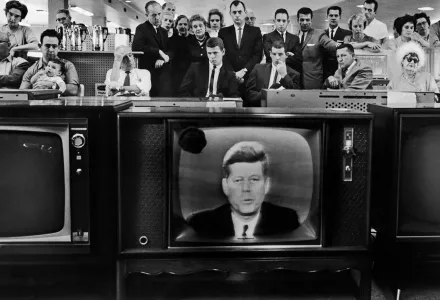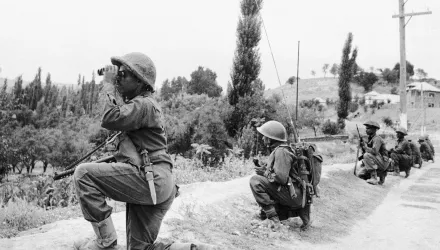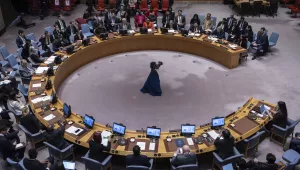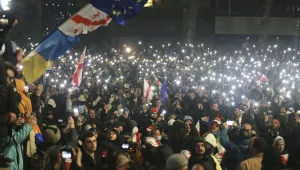Nearly sixty years after the Cuban missile crisis and thirty years after the end of the Cold War, today’s leaders appear capable of repeating the dangerous precedents of the past. In order to better understand and manage the major nuclear challenges of the 21st century, the lessons of the past should be considered. Serhii Plokhii will discuss the lessons of the Cuban Missile Crisis on the basis of the research that went into his new book, Nuclear Folly: A History of the Cuban Missile Crisis. As he argues in the book, more often than not, the Americans and Soviets misread each other, operated under false information, and came perilously close to nuclear catastrophe. Despite these errors, the military conflict was ultimately avoided for one central reason: fear of the nuclear weapons, and the realization that any escalation on either the Soviets’ or the Americans’ part could lead to mutual destruction.
Serhii Plokhii is the Mykhailo Hrushevsky Professor of Ukrainian History at Harvard University and the director of the Ukrainian Research Institute. His interests include the intellectual, cultural, and international history of Eastern Europe, with an emphasis on Ukraine. He is the author of, among others, The Frontline: Essays on Ukraine's Past and Present (HURI, 2021); Nuclear Folly: A History of the Cuban Missile Crisis (W. W. Norton, 2021); Forgotten Bastards of the Eastern Front: American Airmen behind the Soviet Lines and the Collapse of the Grand Alliance (Oxford University Press, 2019); Chernobyl: The History of a Nuclear Catastrophe (Basic Books, 2018); and The Gates of Europe: A History of Ukraine (Basic Books, 2015). His books have won numerous awards, including the Ballie Gifford Prize and the Shevchenko National Prize (2018).




